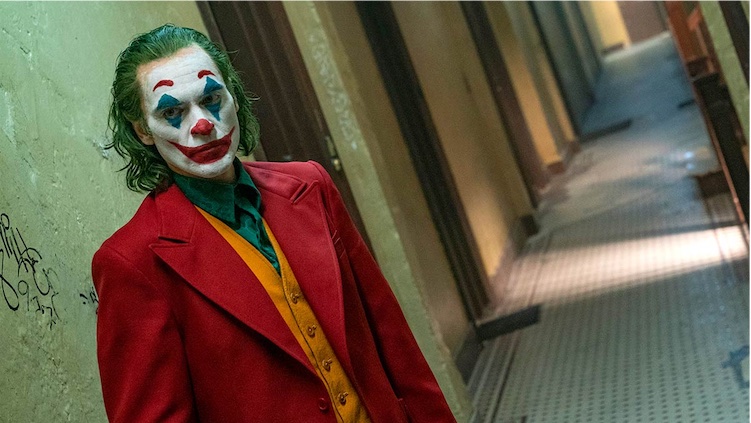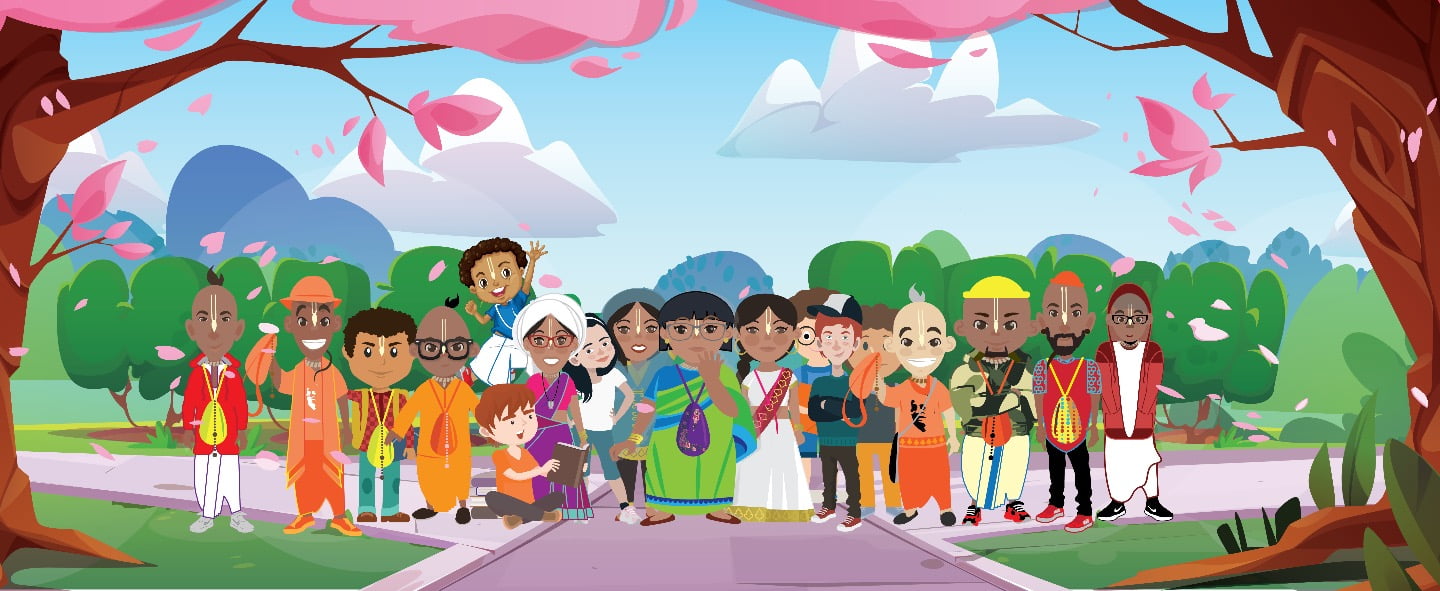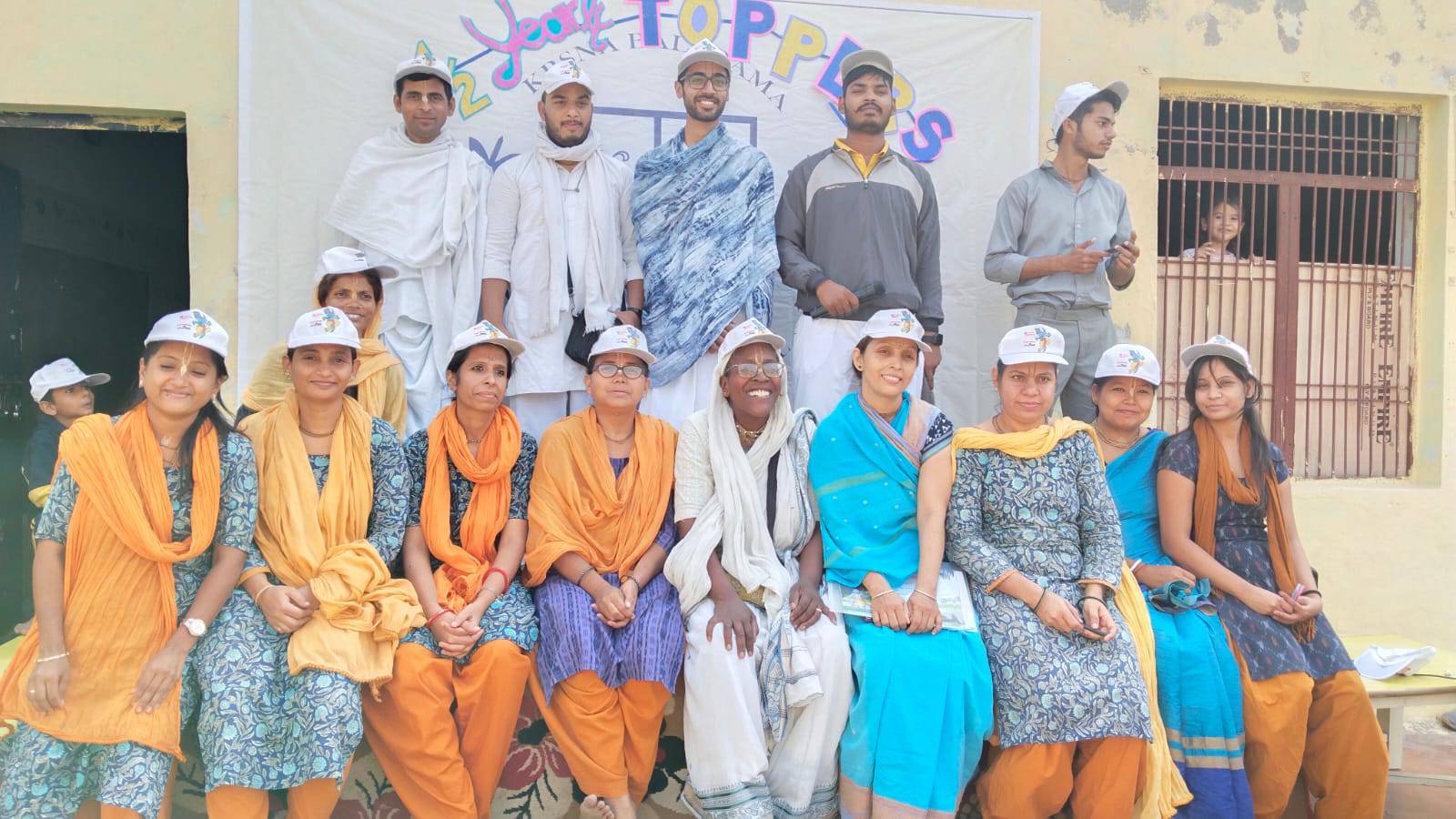Spiritual Reflections on ‘Joker’, A Movie about Fallible Soldiers
By Bhagavan Dasa | Oct 25, 2019

(This article contains plot-revelations.)
Forever alone in a crowd, failed comedian Arthur Fleck seeks connection as he walks the streets of Gotham City. Arthur wears two masks — the one he paints for his day job as a clown, and the guise he projects in a futile attempt to feel like he’s part of the world around him. Isolated, bullied and disregarded by society, Fleck begins a slow descent into madness as he transforms into the criminal mastermind known as the Joker. A movie directed by Todd Phillips.
Joker is a movie with many layers: moral, social, existential, psychological. Above all, what the film communicated to me was the fallibility of the soldiers we rely on for our well-being, safety and purpose in life.
Arthur Fleck, the real name of the Joker in the movie, is a man who receives no protection from anyone who should be supporting him: his mother could not give him a safe childhood, his father gave him no affection, his comedy idol ridicules him, he loses his job, troublemakers beat him on the street, his psychiatrist doesn’t care enough, and the government cuts funds that would go to his therapy sessions and medicines.
According to the Vedic scriptures, all these refuges that fail with Joker had an obligation to support him:
Parents must undertake every means necessary to free their children from all suffering, not only in this life, but in such a way that they will never have to be reborn and go through the inherent sufferings of life in this world: “One who cannot deliver his dependents from the path of repeated birth and death should never become a father […] or a mother…” (Srimad Bhagavatam 5.5.18)
Those who become idols for being great in fame, wealth or the like must have a superior and exemplary conduct: “…just for the sake of educating the people in general, you should perform your work. Whatever action a great man performs, common men follow. And whatever standards he sets by exemplary acts, all the world pursues.” (Bhagavad-gita 3.20-21)
Keeping the streets peaceful for honest citizens is the duty of the government: “If you did not mount your victorious jeweled chariot, whose mere presence threatens culprits, if you did not produce fierce sounds by the twanging of your bow, and if you did not roam about the world like the brilliant sun, leading a huge army whose trampling feet cause the globe of the earth to tremble, then all the moral laws governing the varnas and asramas created by the Lord Himself would be broken by the rogues and rascals.” (Srimad Bhagavatam 3.21.52-54)
It is also the government’s duty to provide social security and care for the sick and others at social risk: “The weak and oppressed, the blind, the deaf, the crippled, the orphan, the elderly, the widows, the sick and the afflicted should receive food, clothing, medicine, shelter and other necessities.” (Mahabharata 12.86.24) “The power of the oppressed and desolate is in the king.” (Ramayana 7.59) “…A fearless king, just like a father, must save all of the citizens from difficulty…” (Srimad Bhagavatam 11.17.45)
Thus, Joker’s disstress finds justification – or at least traceable origin. All his needs and desires for affection and safety are unfulfilled.
Krishna says in the Bhagavad-gita (2.63) that the consequence of this frustration is anger (kama esa krodha esa). This anger progresses to different forms of concrete violence, according to several factors. People who have little freedom to be outwardly violent may prefer self-violence in the form of depression, drug abuse or self-blame, while people with more opportunity to vent anger may engage in domestic violence, psychological abuse of employees and other similar attitudes. Other forms of violence, of course, include those that Joker goes through: desire for suicide, revenge crimes, and seeking attention at any price.
Fallible Soldiers
These same scriptures that describe the duties of family, influential people, and the government bring us a warning: they are fallible soldiers. “Persons devoid of atma-tattva do not inquire into the problems of life, being too attached to the fallible soldiers like the body, children and wife. Although sufficiently experienced, they still do not see their inevitable destruction.” (Srimad Bhagavatam 2.1.4)
Lacking atma-tattva, i.e., lacking knowledge concerning spiritual and eternal things, we forget that the soldiers who fight for us are fallible and we rely on them excessively. The government, psychiatrists, family, etc. may be deserter soldiers in the midst of combat on our behalf, or even if they fight to death, they are mere fragile soldiers, incapable of extraordinary things, such as giving us the love we long for, eternal health, and a kingdom without anxiety.
Have we placed all our hope in these soldiers for lack of experience? Do we do this because we haven’t seen them fail enough? Do we have hope because we have not studied history enough to know what the communist, capitalist, monarchist, and theocratic governments are and were? Have we not heard the popular songs enough to know that romantic love does not meet our expectations? Have we not watched enough soap operas to know about familiar dramas? The Srimad-Bhagavatam verse says that this is not the point: “Although sufficiently experienced…” If even sufficiently experienced we put all our chips in this, what can rid anybody of this vain hope? The verse answers: Atma-tattva, spiritual knowledge.
Unlike the fallible soldiers of the body, relatives, etc., God is called Acyuta, “infallible,” and He is also called Akincana-gocara, “the shelter of the shelterless.” When everything and everyone else has failed us, our only resource and hope is that which is spiritual. There are three spiritual things: you as an immortal spirit, God as the supreme immortal Spirit, and your relationship with God. The more we get attached to these three things, the safer we will be in the inevitable defeat of the other soldiers.
Everything Must Go
Earlier in the movie, Arthur Fleck, the future Joker, works like a clown announcing a stock burn of a store that is about to close down. On the sign that he holds, we read: “Everything Must Go”.
The film’s director, however, seems to tell us that this sign is not about the products, but about life itself, which also always goes bankrupt and will throw it in our face. Troublemakers take Arthur’s sign and break it against his face. “Everything must go,” as the sign says, is the life of Joker, where everything is lost scene after scene. But this is also our life, even if we are not as disgraced as Gotham’s villain. With death, with old age, with disease, with economic recessions or by any other means, everything we have will also go. And when everything goes, what do we have left? If all we had was attachment and expectations for everything that goes, there will be anger, hatred, violence… We will be the next Joker, hating our own lives, or considering that everyone is crazy and awful, and worthy of our punishment.
But! If we have something that cannot be stolen – as Jesus said, that cannot be reached by thieves or moths – spiritual treasures, there will be something left when all that had to go are gone, when all the soldiers of inevitable defeat are gone. Then, even in the midst of pain and fear, it can make all the difference. Accumulating spiritual possessions is critical if we want any real security. This is actually the only way you have to not let life make a clown out of you.
* * *
Bhagavan Dasa is editor-in-chief of BBT and Back to Godhead Brazil, and pedagogical coordinator of Instituto Bhaktivedanta de Estudos Védicos. In 2005, he attended Bhakti-shastri at Instituto Jaladuta. He lives in Ashram Vrajabhumi, Brazil, with his wife and children.












